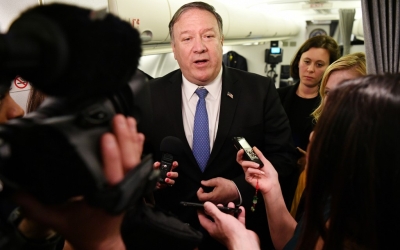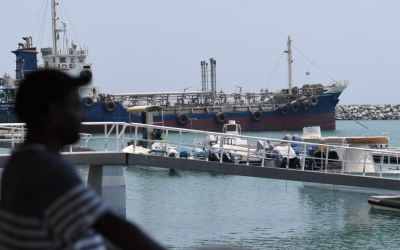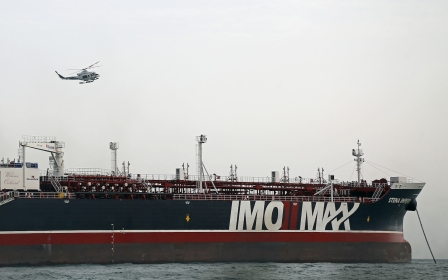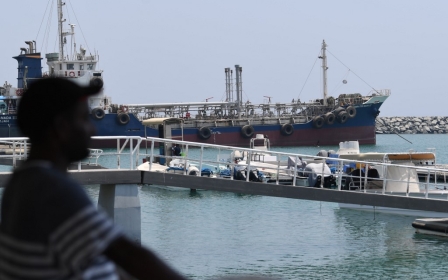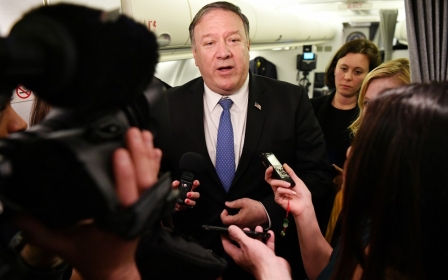Germany's Scholz 'very sceptical' about US mission for Strait of Hormuz
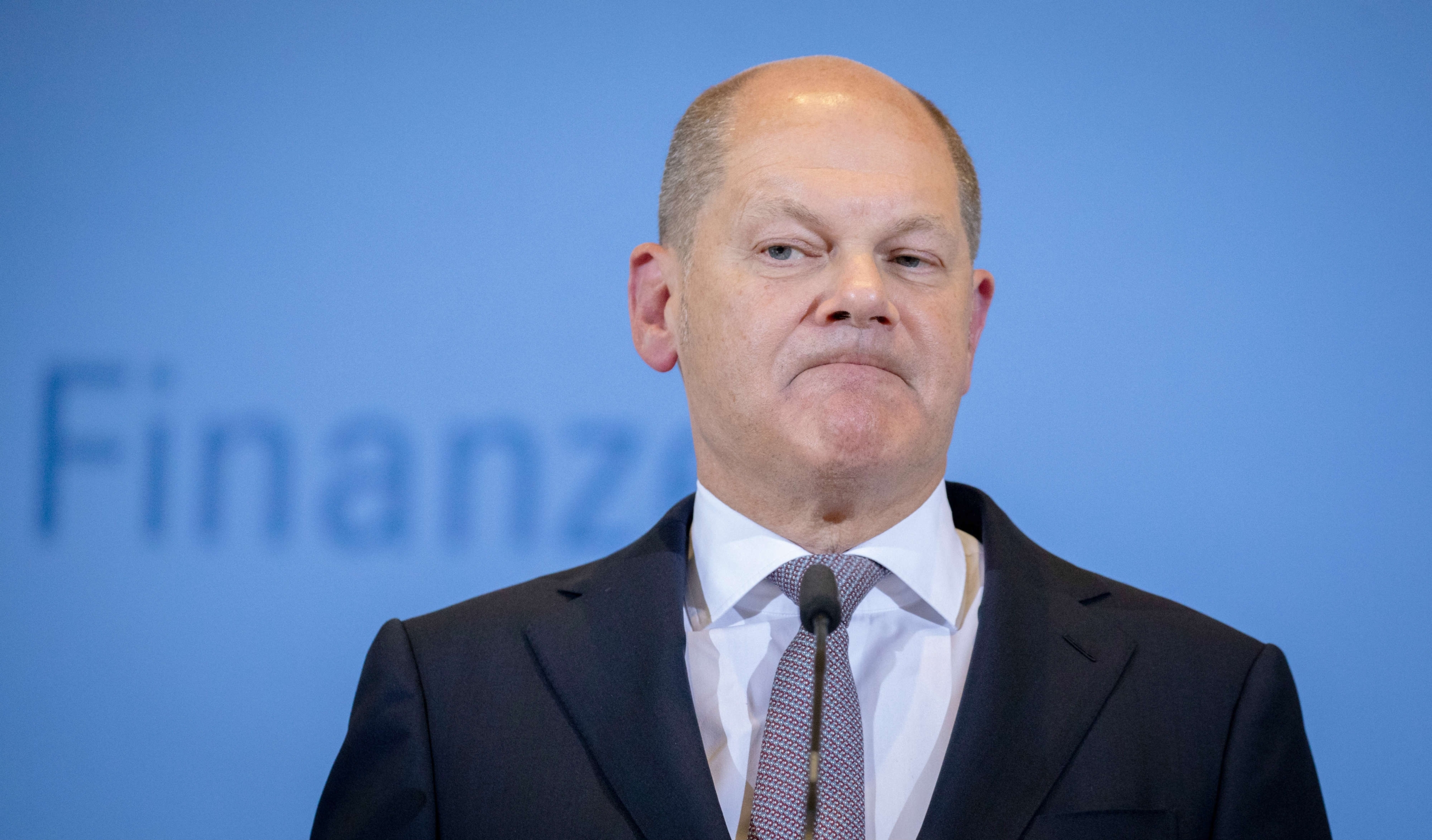
Olaf Scholz, Germany's vice chancellor and finance minister, said on Wednesday that he was very sceptical about a request by the United States to join a military mission for the Strait of Hormuz.
Washington has proposed stepping up efforts to safeguard the passage of vessels through the stretch of water in the Gulf, at a time of heightened tension between it and Iran.
About a fifth of the world's oil passes through the strait.
The US had formally asked Germany to join France and Britain in a mission to secure the strait and to "combat Iranian aggression," the US embassy in Berlin said on Tuesday.
"I'm very sceptical about that, and I think that's a scepticism that many others share," Scholz told ZDF television.
The vice chancellor said it was important to avoid a military escalation in the region and that such a mission carried the risk of being dragged into an even bigger conflict.
"That's why I think this is not a good idea," he said.
There is considerable opposition among Scholz's Social Democrats (SPD), junior partners in Chancellor Angela Merkel's ruling coalition, to getting involved in the mission.
Asked whether the coalition parties shared the same view on the US request, Scholz said: "Yes, that's my impression."
He said that Berlin still viewed the international nuclear agreement with Iran as the best option to prevent it developing a nuclear bomb.
'Situation requires a European response'
Norbert Roettgen, a Merkel ally and member of her conservative bloc, said he believed Germany should not join the mission.
"This situation requires a European response," Roettgen, chairman of the Bundestag's foreign relations committee, told ZDF.
"The alternative to rejecting a mission with the Americans is not to do nothing - I see that [view] among many people, unfortunately also in the SPD - but rather the alternative is a European mission, if necessary without the British, if they decide for the US."
Former chancellor Gerhard Schroeder, a Social Democrat, welcomed the SPD opposition to joining the mission.
"I very much welcome the critical remarks from the SPD. A robust US-led operation could quickly escalate," Schroeder, who opposed the 2003 US-led invasion of Iraq, told the Rheinische Post newspaper.
The German government has not offered any contribution to the US-led mission but thinks it is "worth considering" a European mission and is in touch with its partners on that, a spokeswoman said on Wednesday.
"The government is reticent about the concrete US proposal and so has no made an offer," the spokeswoman told a news conference.
"For us, it is important to pursue the avenue of diplomacy... and to seek talks with Iran to achieve a de-escalation."
No Nato request
New defence minister Annegret Kramp-Karrenbauer said in a speech last week that Germany is a "reliable ally" for its Nato partners.
But she added: "We must always examine scrupulously requests for support from our partners. We mustn't affirm hastily, nor issue knee-jerk rejections."
Kramp-Karrenbauer is due to meet Nato Secretary-General Jens Stoltenberg on Wednesday.
Stoltenberg said on Wednesday that there had been no formal request for the military alliance to launch a mission in the Strait of Hormuz.
Middle East Eye delivers independent and unrivalled coverage and analysis of the Middle East, North Africa and beyond. To learn more about republishing this content and the associated fees, please fill out this form. More about MEE can be found here.


